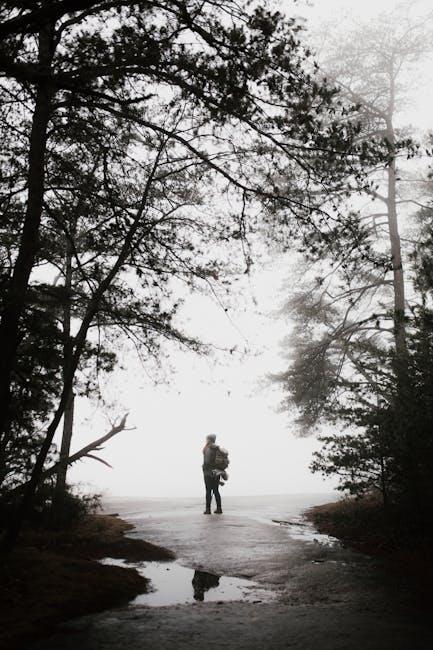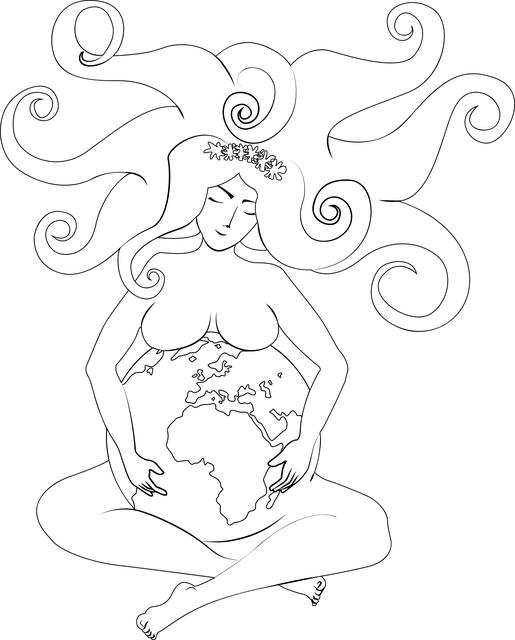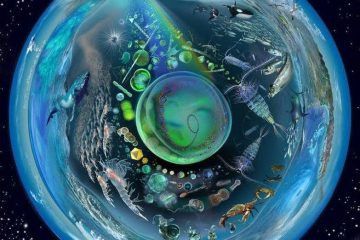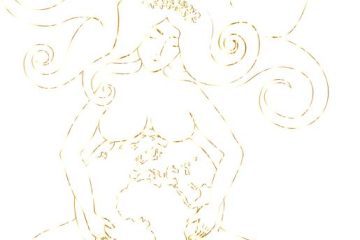Embark on a journey into the intricate realm of Gaia theory criticism, where the winds of scientific discourse sweep through the vast landscape of environmental thought. As we delve into the depths of this controversial theory, we navigate the turbulent waters of skepticism and analysis, seeking to unravel the threads that bind the Earth and all its living beings. Join us on this intellectual expedition as we explore the diverse perspectives that shape our understanding of Gaia theory and its place in the ever-evolving tapestry of scientific inquiry.
Table of Contents
- Critiquing the Gaia Theory: Unveiling Controversies
- Exploring Scientific Challenges to the Gaia Hypothesis
- Unpacking Misconceptions Surrounding Gaia Theory
- Reevaluating Gaia Theory: Moving Beyond Criticism
- Q&A
- In Conclusion
Critiquing the Gaia Theory: Unveiling Controversies
Within the realm of scientific discourse, the Gaia Theory stands as a captivating concept that posits Earth as a self-regulating organism. However, beneath its seemingly harmonious facade lies a web of controversies that spark debates and challenge conventional wisdom.
Key Controversies Surrounding the Gaia Theory:
- Anthropocentric Criticism: Some argue that the theory gives humans a privileged role within Earth’s systems, potentially leading to complacency in addressing environmental issues.
- Scientific Rigor: Critics question the empirical evidence supporting the theory, calling for more robust scientific validation and reproducibility to solidify its status within mainstream science.
Exploring Contradictions in Gaia Theory:
- Ecological Balance vs. Catastrophic Events: The theory’s emphasis on Earth’s self-regulation clashes with the reality of natural disasters and extinctions, raising doubts about the extent of Gaia’s control.
- Predictive Capabilities: Skeptics point out the theory’s limitations in accurately predicting ecological phenomena, casting doubt on its practical utility in guiding environmental policies.


Exploring Scientific Challenges to the Gaia Hypothesis
When delving into the intricate realms of the Gaia hypothesis, it becomes imperative to acknowledge the scientific challenges that have sparked debates and discussions within the academic community. One of the primary criticisms revolves around the perceived teleological aspect of the hypothesis, questioning the notion of Earth as a self-regulating organism with intrinsic purpose.
Another significant point of contention lies in the empirical evidence supporting Gaia theory, with critics challenging the validity and consistency of data that purportedly backs the hypothesis. The intricate balance between biological systems and the Earth’s geochemical processes raises fascinating questions about the interconnectedness of life on our planet. This exploration of scientific challenges sheds light on the complexities and nuances of the Gaia hypothesis, inviting further inquiry and critical analysis.


Unpacking Misconceptions Surrounding Gaia Theory
When it comes to discussing Gaia Theory, there are often misconceptions that cloud the understanding of this intriguing concept. One common misconception is that Gaia Theory proposes the Earth as a sentient being, capable of conscious thought and intention. In reality, the theory suggests that the Earth is a self-regulating system, where living organisms and the environment interact to maintain conditions suitable for life.
Another misconception surrounding Gaia Theory is that it promotes a mystical view of nature, attributing supernatural powers to the planet. However, at its core, Gaia Theory is rooted in scientific principles and seeks to explain how life and the environment are interconnected in a complex web of interactions. By unpacking these misconceptions, we can appreciate the true essence of Gaia Theory and its implications for our understanding of the natural world.


Reevaluating Gaia Theory: Moving Beyond Criticism
Exploring the intricacies of Gaia Theory leads us to a realm where nature’s interconnectivity shines brightly. Embracing this holistic perspective, we delve into a world where the Earth itself is viewed as a self-regulating organism, fostering a harmonious balance between living organisms and their environment.
As we reevaluate the criticisms surrounding Gaia Theory, we uncover an opportunity to shift our focus towards understanding its deeper implications. By moving beyond mere skepticism, we open doors to a realm of exploration where Gaia’s resilience and interconnectedness with all life forms become not just theoretical constructs but profound realities to be acknowledged and respected.
Q&A
Q: What is Gaia theory?
A: Gaia theory, proposed by scientist James Lovelock in the 1970s, suggests that the Earth functions as a self-regulating organism with various systems working together to maintain life.
Q: What are some common criticisms of Gaia theory?
A: Some critics argue that Gaia theory anthropomorphizes the Earth, attributing human-like characteristics to the planet. Others claim that the theory lacks empirical evidence and is more of a metaphorical concept than a scientific theory.
Q: Does Gaia theory ignore the impact of human activities on the environment?
A: Critics of Gaia theory point out that it may downplay the negative effects of human activities on the environment by suggesting that the Earth can easily adapt and recover from damage caused by humans.
Q: How does the scientific community generally view Gaia theory?
A: While Gaia theory has sparked interesting discussions about the interconnectedness of ecosystems, many scientists view it with skepticism due to its lack of quantifiable evidence and testable hypotheses.
Q: Can Gaia theory contribute to our understanding of environmental conservation?
A: Proponents of Gaia theory argue that it can inspire a deeper appreciation for the Earth and promote sustainable practices, but critics caution against relying on a theory that may oversimplify the complexity of ecological systems.
In Conclusion
while Gaia theory has sparked debates and faced criticism from various angles, it undeniably serves as a thought-provoking concept that encourages us to reassess our relationship with the Earth. By delving into the complexities of this theory and examining its critiques, we gain a deeper understanding of the intricate web of life that surrounds us. As we navigate the realms of science, philosophy, and environmentalism, let us continue to explore, question, and contemplate the profound connections that bind us to our planet and each other. Embracing both skepticism and curiosity, we embark on a journey of discovery that may ultimately shape our collective future on this wondrous planet we call home.




0 Comments